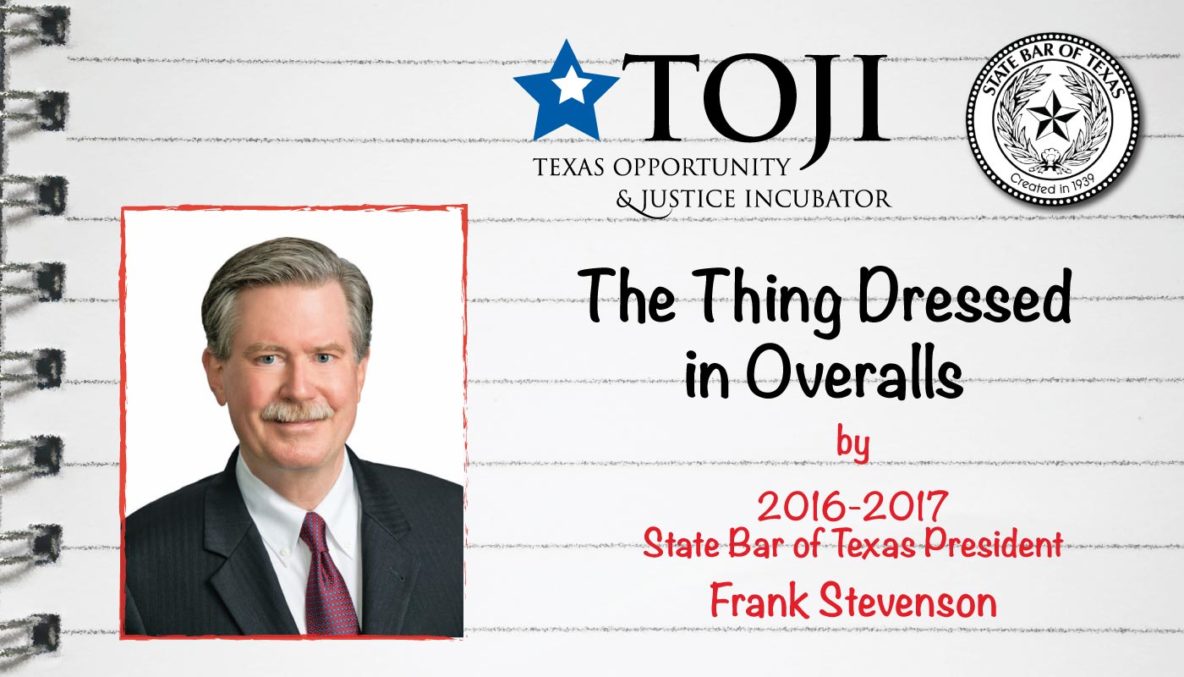The “Factory of Sadness” is the rueful nickname embraced by long-suffering Cleveland Browns fans for their stadium—the only NFL stadium to never host a postseason game. During my upcoming year as State Bar president, I’m unlikely to have a solution to that or (alas) a near-identical calamity much closer to home. But fortunately I do know “factories” of a very different sort, including one 300 miles due west of Cleveland that I visited in February.
The Justice Entrepreneur Project is a legal services “incubator” formed by the Chicago Bar Foundation, which trains, mentors, and equips new lawyers “to start innovative, socially conscious law practices providing affordable services to low and moderate income people.” Though offered well-appointed law-firm space, its founders deliberately sited it in a repurposed industrial warehouse with Spartan common areas, gouged wood-plank floors, and exposed beams and conduit. A place where you’d expect to see people dressed in overalls.
If it looks like a factory, that’s because it is one. It’s a factory of opportunity.
Good thing, since the demand for what that factory produces has never been greater. Only one in five poor Americans with civil legal needs finds help; for middle-income Americans, only two in five. And there’s another tragedy playing out at the same time: Ten months after graduation, only 60 percent of law school grads hold jobs requiring a J.D. The enormous need for justice and the enormous need for opportunity don’t meet.
Corporate entities, often utilizing non-lawyers, are stepping in to try to serve the vast sweep of Americans we lawyers aren’t. While their activities raise profound concerns, only saying no to them, without saying yes to something else, is inadequate.
The JEP is something to say yes to. Four-fifths of JEP’s alumni are now working in their own firms exclusively to address the “justice gap.” And there are other initiatives that match our citizens’ need for justice with our profession’s need for opportunity. And they are things to say yes to, also.
Over the next year, your State Bar will establish the first legal incubator in Texas, as well as support our several law schools and metro bars that are advancing incubators of their own. That will require work—lots of it.
And, partnering with the Texas Commission to Expand Civil Legal Services formed by Texas Supreme Court Chief Justice Nathan Hecht and led by former Chief Justice Wallace Jefferson, your bar will work to identify and support other initiatives to advance justice through opportunity.
Thomas Edison, who knew a few things about factories, observed that “opportunity is missed by most people because it is dressed in overalls and looks like work.” For our bar and our profession, opportunity looks like work because work is required—lots of it. But it’s the kind of work that advances justice through opportunity, and thus mills through the chaff of what merely differentiates us as Texas lawyers to the germ of what binds us to shared aims and ends.
Fortunately, once we knew what we were looking for, opportunity like the legal incubator was easy to spot. And so will the next initiative that follows it.
It’ll be the thing dressed in overalls.

